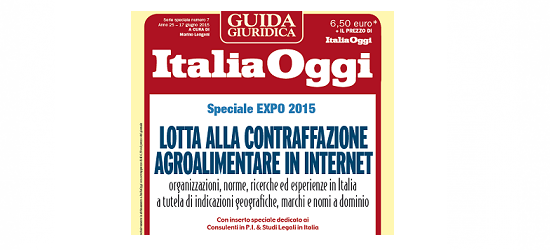
Giorgio Gazzola, Attorney at law & Trademark Attorney, Jaumann sas, Milan
The Italian company Alpha S.p.A. has been operating for over 35 years in the cold cuts and cured meats sector. The company has made a name for itself in the market through its Gamma trademark, and has become a leader in the pork meat retail market. Alpha quickly expanded its business outside national borders, contributing to the reputation for excellence of Italian agricultural and food products abroad. The United States and Canada, where the taste of traditionally manufactured Italian products is greatly appreciated, are among Alpha‘s most important foreign markets. Italian wine and food products are hugely popular abroad, as testified to by a widespread custom called Italian-sounding, i.e. associating agricultural or food products – notwithstanding their origin – with one or several typical Italian elements. Such an “Italiano” element may consist of a name similar to an original product (e.g. Parmesan), a fantasy trademark built on imaginary Italian roots (e.g. Luigi Giovanni), or the use of pictures or color layouts on packaging or labels that are explicitly relatable to Italy, such as the Italian flag or famous landscapes, e.g. the Coliseum or the Gulf of Naples. In the case at hand, Alpha, after successfully selling their products in North America, was unexpectedly forced to defend itself against charges of trademark counterfeiting lodged by Beta, a Canadian company from Ontario. Beta had previously registered the identical Gamma trademark for its food products in the USA and Canada. Therefore, Beta‘s intellectual property rights were sufficient to prevent Alpha from selling their cold cuts in those markets with the same trademark. It is well known that trademark rights in the USA are based on the so-called “first to use” principle, i.e., the first entity using the trademark in commerce on goods will hold the corresponding “common law” rights in the mark for those goods. However, if a second to use the mark on substantially similar goods registers a federal trademark first, the first use or so called “senior user” will be legally relevant only for the geographic area in which the trademark was used and the registered second to use or so called “junior user” will have presumptive nationwide rights. Under this scenario, the senior user still maintains rights, but those rights are frozen as to geographic area as of the date that the junior user obtained its registration. If the geographic area of the unregistered senior user however had in fact been the entire US territory, the senior user can prevail over a junior user holding a registration, and would have the basis to cancel the registration of the junior user but this will entail – in addition to all risks inherent to the relevant proceedings – considerable costs and burdens. It is important thus to reiterate that, in the USA, the first use of a trademark does not guarantee valid rights over the whole national territory – the use of the trademark must be territorially widespread at a national level to achieve common law rights throughout the market. By registering a trademark, however, one secures the presumptive corresponding rights over the whole country, even with a territorially restricted use. In the present case, Alpha initiated a cancellation action against Beta‘s registered trademark Gamma based on its prior use. The result of such action was the negotiation of a settlement agreement by which the parties agreed to coexistence under the following terms: Beta withdrew from registration and use only their cold cuts, while keeping their trademark rights for other food products.
This case teaches us that, although the “first to use” principle (applied by only a handful of countries, incidentally) offers legal remedies against a subsequent user who registers first, only registration will guarantee nationwide rights. Had Alpha registered its trademark from the time that it began to do business in the USA, it would have clearly had superior rights and would have been able to stop Beta, who then would have been deemed an infringing user.
